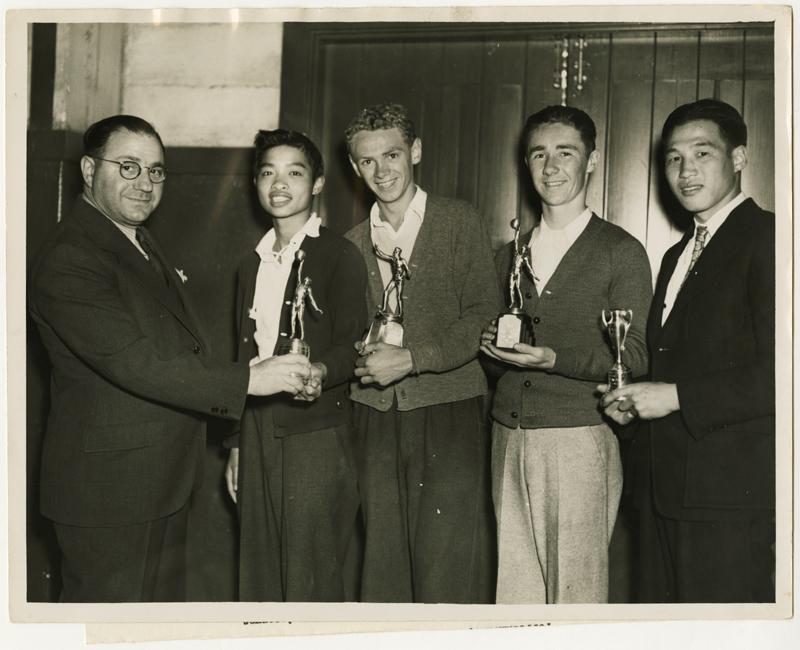 In the array of channels and platforms facing a comms person sometimes the online community gets overlooked. What's that? It can be the web forum and the place where people with a shared interest come together. But what makes them work? What ingredients do you need if you are thinking of setting one up yourself? Or what makes them tick if you want to understand them more?
In the array of channels and platforms facing a comms person sometimes the online community gets overlooked. What's that? It can be the web forum and the place where people with a shared interest come together. But what makes them work? What ingredients do you need if you are thinking of setting one up yourself? Or what makes them tick if you want to understand them more?
by Richard Millington
If you’re new, here’s a background primer on successful communities.
Successful online community building is connecting a group of people online and making them feel a part of something special. This 'something special’ element is the overlooked bit.
You do this by identifying something people believe in and inviting them to talk to each other. You don’t create the interest, you create the platform that epitomizes it. It’s important you don’t try to create the raison d'etre. i.e. Don’t try to persuade non-swimmers to become swimmers and join your community, just focus on persuading enthusiastic swimmers to join. Most brands stumble at this stage.
However, the common interest is the first level of the group bonding. It’s usually overrated. If you’ve ever been part of a purposeful group you know it’s not the mission/common interest that matters. The most important missions on the planet often have the lowest level of engagement. What matters most is how well you bond with others members of the group.
The better you get to know and like your fellow members, and the more you care about their opinion of you, the more you participate and thus work towards a successful goal.
Your role is to create an environment, through both your mass and micro (one to one) communications, that facilitates this. This means in public you might recognize top members, talk about the community and plan events. In private you might build relationships with key members, introduce members to each other, ask for opinions and suggestions and work towards a greater good.
This also means designing your community that reflects both the common interest and the individual contributions as equals. Half your community might be about developments on the topic, the other half should be about the contributions of members.
It’s important to start small. Big launches tend to struggle with their own high expectations. No successful online community had a big launch day. They began small and celebrated other milestones, perhaps their birthday, or perhaps their 1000th member.
So begin by talking to a few members at a time and introducing them to each other. Make sure you know the early members very well personally. Aim for slow, steady growth and a high level of participation from each member. As you grow you can begin focusing your attention on the key members and recruiting volunteers to help develop the community.
The most difficult element is usually recruiting people in the first place. You need to target people that use the internet but typically aren’t heavy internet users. You can find them on Twitter, LinkedIn, Facebook, YouTube and dozens of other outlets. Usesearch.twitter.com too, find people talking about your topic and get to know them. It’s time-heavy, but pays off in the longer run.
As you recruit members you need to bond them together. Bonding a community means doing things together. Like challenges for your community, milestones to reach or problems to overcome. It also means having a high level of interactions per member and ensuring members are happy to disclose their thoughts, feelings and other information.
This self-disclosure is important. If you’re not continuously asking members to share their thoughts and experiences, members will never truly bond as a group. No bonds means low engagement and participation rate. More importantly, it means no community spirit (thesomething special we mentioned at the beginning).
Allowing self-disclosure also means accepting negative comments. Not personal attacks, they’re nearly always worth removing (as our racist, bigoted and sexist remarks, but allowing conversations to be negated. Allowing heated debates and open disagreement to take place. It’s tough to let this happen, it feels like you should jump in and break it up. But don’t. Let people get their opinions out into the open.
Now as your community grows you need to begin decentralizing responsibility. Give popular members their own forums/groups to moderate. Schedule regular events/activities that other members can be responsible for organizing.
Finally, dream big. Begin arranging offline meet-ups and consider pushing the boundaries. Try adding a paid job adverts page, developing branded products, inviting relevant companies to run focus groups.
If only creating a community was as easy as writing about how to create one. You’re going to find it hard. You’re going to find some things fail. You might not get it right on your first time. However, give it time, be patient and you will be rewarded for your efforts.
Good luck.
Richard Millington is the founder of FeverBee Limited, an online community consultancy, who is organising Vircomm2014 the virtual community summit on February 20 to 21 in London. More information here.
